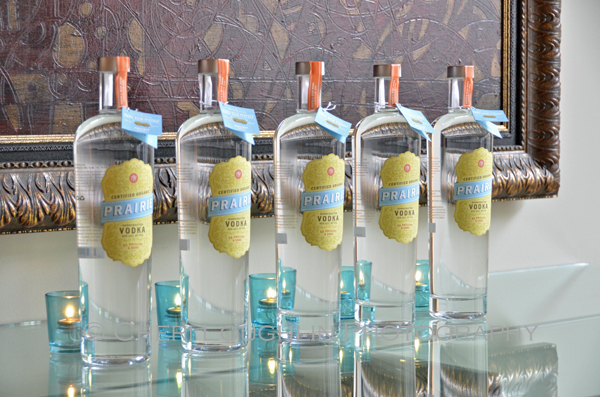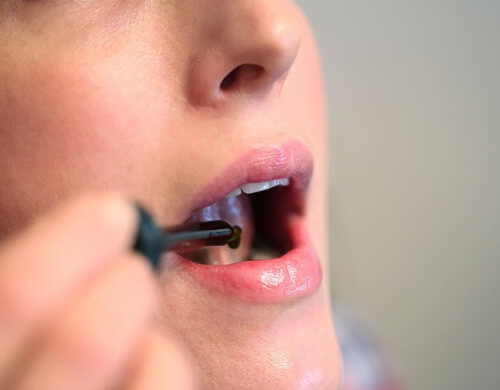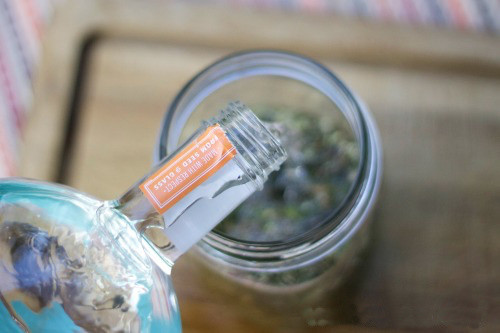The Benefits of Herbal Tinctures
A tincture is a liquid extract made from herbs. We primarily use alcohol because of how great it extracts the useful goodness from the plants more completely and because it offers an unlimited shelf life, but tinctures can be extracted by using alcohol, vegetable glycerine, or apple cider vinegar.
TINCTURES VS TEA
Teas and tinctures can be made from the same combination of herbs, but tinctures are more concentrated and for some situations, the powerhouse, more effective heavy hitter. NOTE: Two droppersful of tincture equals one 8 oz. cup of tea. Other times, it just comes down to preference. Drinking tea is relaxing. From the process of brewing a cup, through the process of leisurely sipping it down, it slows us down. If you don't care for tea, or you need to a quick and convenient option, tinctures are a very good choice. Tinctures require no brewing and can easily be carried along with you. You may put the droppersful of tincture into a warm cup of water to make an instant tea!
WHY WE PREFER ALCOHOL TINCTURES
Some herbs will not give up their medicinal properties to a solvent less potent than alcohol. Alcohol-based tinctures are safe for use by children, pregnant women, and breastfeeding women, since the amount of alcohol ingested per dose is the equivalent of eating a very ripe banana.
Alcohol has been used as a solvent in herbal tinctures for centuries. It remains popular today for its fast-acting properties, its potency, and its ability to preserve the shelf-life of tinctures. Given that only a very small amount of alcohol is consumed when we use a herbal tincture, it remains a very safe and effective way of delivering our favorite herbal remedies.

The Herbal Toad uses high-proof organic grain alcohol that is commercially available and very safe for consumption. Tinctures are taken in very small dosages (usually between 20-40 drops) and therefore, the amount of alcohol consumed is negligible.
- Alcohol is a powerful (and safe) solvent- Alcohol is an excellent solvent for herbs, because it can extract the compounds and active ingredients that aren’t water-soluble, such as essential oils, alkaloids and resins. It is also the only natural, organically available solvent that can effectively extract some herbs, such as roots, barks, berries, and non-aromatic seeds. Extracting with a less-powerful liquid will only result in a less-effective product
- The body can absorb alcohol quickly- Alcohol-based tinctures are extremely fast-acting, because alcohol can enter our bloodstream very quickly. Our tongue and cheeks contain lots of capillaries which quickly absorb the alcohol. This means that when we place some drops under our tongue, we’re not actually digesting the extract. Rather, it’s entering our bloodstream almost immediately to deliver the tincture’s potent properties.
- Alcohol is a preservative- Alcohol gives herbal extracts a longer shelf-life – in most cases at least five years. Or think of an aged Whiskey.
- Alcohol allows us to create potent tinctures- Alcohol-based tinctures are also highly potent and concentrated, meaning only a very small dose is required to reap the benefits. In fact, everyday food items such as an overripe banana and fermented fruit and vegetables contain approximately the same amount of alcohol as a single dose of a liquid extract.

TINCTURE DOSAGE
Taking the tincture directly under the tongue and avoiding any liquids or foods for at least 15 minutes afterwards provides the best results.
Tinctures are usually taken by the dropperful (also known as a squeeze). A dropperful is the amount of liquid that fills the glass tube of the dropper when the bulb on the dropper top is squeezed and released. The liquid may fill the glass tube only a small portion of the way, but that is considered a "dropperful". A dropperful equals approximately 30 drops.
On all dropper tops, no matter how large or small of a tincture bottle it comes with, the bulb (the thing you squeeze) is the same size on them all. The bulb is what determines how much liquid fills the tube, not the length of the tube itself.
A standard suggested adult dosage for tinctures is 2 droppersful two to three times a day.
With this standard dosing suggestion (for adults) of two droppersful three times a day, tincture bottles typically last this long:
- 2oz. tincture bottle will last two weeks
- 4oz. tincture bottle will typically last about a month.
MORE IS NOT BETTER
Because the use of tinctures does not require a prescription, and because they are plant-based, there is a tendency for people to believe that you can "up" the dosage. Tinctures come with suggested dosages (a dropperful, or 30-40 drops, 2-3 times a day, for most), and if you have any concerns or questions about what amount is best for you, seek out the advise of a trained professional. Moderation is the key to avoiding side effects.
HOW TO GET TINCTURES DOWN
The high alcohol content coupled with the bitter flavors of the plants can make taking tinctures a bit difficult until you get used to it.
- Directly under your tongue- This method allows the fastest effect as the make-up of tinctures makes them absorb quickly into the bloodstream without having to digest them first.
- In a small amount of water- combine the dose with a small amount of water and taking it down quickly.
- In hot water or tea- Many people find tinctures more palatable in tea, as the hot water will "burn off" the alcohol content without disturbing the medicinal quality.
- Add honey or lemon- Adding things like honey for taste will not alter a tinctures effectiveness. Remember: No honey for children under 1 year of age.
APOTHECARY PIE - a Blog by The Herbal Toad
10 Amazing Elderberry Benefits
While the most common type of elderberry is Sambucus nigra, or black elderberry, there are several v...
Guide to Creating a Personal Space
Having your own personal getaway space can create positive changes to your body, mind, and spirit......
Treating Gout and Kidney Stones Naturally
While gout and kidney stones are sometimes caused by the same thing, too much uric acid buildup in t...




